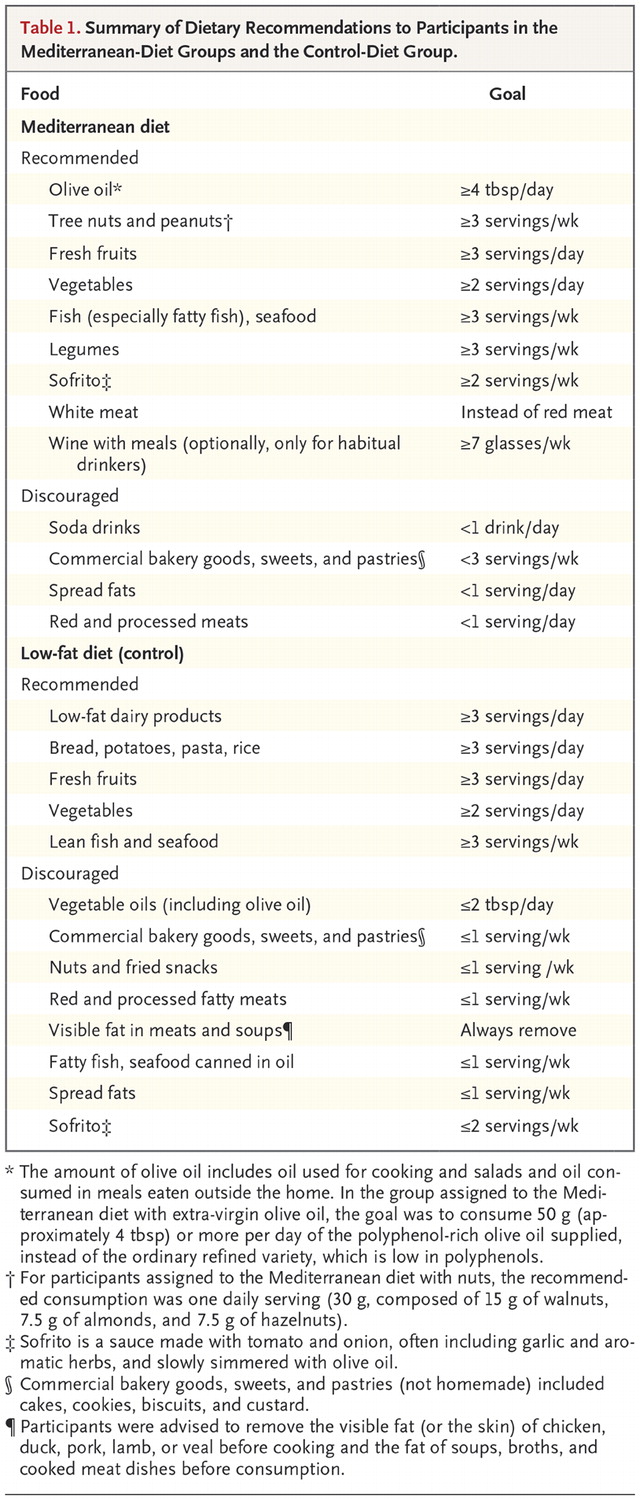It may seem like a buzzword, but the Mediterranean Diet is popping up all over social media for good reason. Certainly any healthy diet seems preferable to the standard one so many Americans participate in, but what makes the Mediterranean diet so special?
Primarily centered on the dietary habits of Greece and Southern Italy, with some nods now to Southern France and Spain, the Mediterranean diet has many variations. Medical News Today highlights the general guidelines of the diet1:
- Lots of plant foods
- Fresh fruit as dessert
- High consumption of beans, nuts, cereals (in the form of wheat, oats, barley, corn or brown rice) and seeds
- Olive oil as the main source of dietary fat
- Cheese and yogurt as the main dairy foods
- Moderate amounts of fish and poultry
- No more than about four eggs each week
- Small amounts of red meat each week (compared to northern Europe)
- Low to moderate amounts of wine
- 25% to 35% of calorie intake consists of fat
- Saturated fat makes up no more than 8% of calorie intake
What Do We Know about This?
One of the key focal points of the Mediterranean diet is its association with a lowered risk for heart disease and stroke. In our last blog post we went through the details of cardiovascular disease and why it’s important to be proactive about your lifestyle so you can decrease your risk.
There was not a lot of support backing the claim to the Mediterranean diet up until a few years ago when more thorough research began being published. One was a comprehensive study published by the New England Journal of Medicine, which shed some much informed light on the situation. Since then, there have been many studies backing this claim.
In the study by the NEJM, doctors followed participants aged 55-80 years of age with no history of heart disease but did have some “…major risk factors [which included]: smoking, hypertension, elevated low-density lipoprotein cholesterol levels, low high-density lipoprotein cholesterol levels, overweight or obesity, or a family history of premature coronary heart disease.”2 They then assigned dietary guidelines to the participants, ranging from the control, which was just a low-fat diet, to a Mediterranean enriched with extra-virgin olive oil, and one supplemented with nuts.
The details of the diet can be seen here, taken from the study cited below.

How Does this Correlate?
The diets, including the control, were all very careful to avoid fats and processed sugars, with particular emphasis on the consumption of vegetables and fruits. These foods tend to be high in fiber. Fiber promotes the production of short-chain fatty acids (SCFA), which contain chemical compounds crucial to colon health and have anti-inflammatory properties. This in contrast to the compound TMAO, or trimethylamine oxide, which is known for its association with heart disease, and is high in products such as beef, pork, and eggs.
Butter is also discouraged from the Mediterranean diet. Butter is a high-cholesterol food, and those with high-cholesterol are at twice the risk of developing heart disease. By simply eliminating the intake of these foods alone, those on a Mediterranean diet decrease their risk for stroke and heart attack significantly.
Also eliminated from this diet is salt. Diets high in sodium are a huge culprit for raising blood pressure, and according to the CDC, 7 out of 10 people having their first heart attack have high blood pressure. Phasing out foods containing a lot of sodium is a step in the right direction for heart health. Instead, dry and fresh spices are utilized in the Mediterranean diet to add flavor, and the benefits of some of these spices also contribute to positive health factors. For instance, many herbs such as basil contain antioxidants, as well as anti-inflammatory compounds.
What About Olive Oil?
Also recently surging into popular health news is olive oil. It is very present in the Mediterranean diet, but is it really all it’s chalked up to be?
The health food item has been touted as the go-to as of late, and while it is a healthier option than some other oils, it remains just that — an oil. In two tablespoons alone it can carry up to 240 calories, so if you’re using an abundance of it, you may be adding unnecessary calories to your meals.
One of the main reasons olive oil is often correlated with heart health is that it contains polyphenols. This is a plant-based chemical compound known for its antioxidant properties as well as playing a role in preventing heart disease. However, the amount of polyphenols found in a tablespoon of olive oil will cost you about 120 calories, whereas were you to eat 11 calories from green lettuce, you would receive the same amount of polyphenols!
Like any food item, moderation is key, and the same is said of olive oil. It’s the Mediterranean diet’s focus on vegetables, fruits, and whole grains that make it heart healthy, not simply the addition of olive oil.
It is important to note that not all diets work for everyone, so be sure to check with your healthcare professional before making any abrupt or substantial alterations to your diet/lifestyle. Though more research needs to be conducted on the Mediterranean diet, it seems generally safe to say that increasing your vegetable and fruit intake and decreasing your red meat, salt, and sugar intake is a good way to start living healthy. No matter what label you put on it.
Works Cited
- “Mediterranean Diet: Facts and Health Benefits.” Medical News Today. N.p., 2 Oct. 2015. Web. 5 Oct. 2015. <http://www.medicalnewstoday.com/articles/149090.php>
- Estruch, Dr., and Martinez-Gonzalez, Dr. “Primary Prevention of Cardiovascular Disease with a Mediterranean Diet.” New England Journal of Medicine. N.p., 4 Apr. 2013. Web. 2 Oct. 2015. <http://www.nejm.org/doi/full/10.1056/NEJMoa1200303?query=featured_home&#;t=article>
References
- “Cholesterol Fact Sheet.” Centers for Disease Control and Prevention. Centers for Disease Control and Prevention, 30 Apr. 2015. Web. 05 Oct. 2015. <http://www.cdc.gov/dhdsp/data_statistics/fact_sheets/fs_cholesterol.htm>
- “High Blood Pressure Facts.” Centers for Disease Control and Prevention. N.p., 19 Feb. 2015. Web. 5 Oct. 2015. <http://www.cdc.gov/bloodpressure/facts.htm>.
- Killoran, Eugenia. “Olive Oil Nutrition – What’s Wrong With Olive Oil?” Pritikin Weight Loss Resort. N.p., n.d. Web. 05 Oct. 2015. <https://www.pritikin.com/your-health/healthy-living/eating-right/1103-whats-wrong-with-olive-oil.html>.

